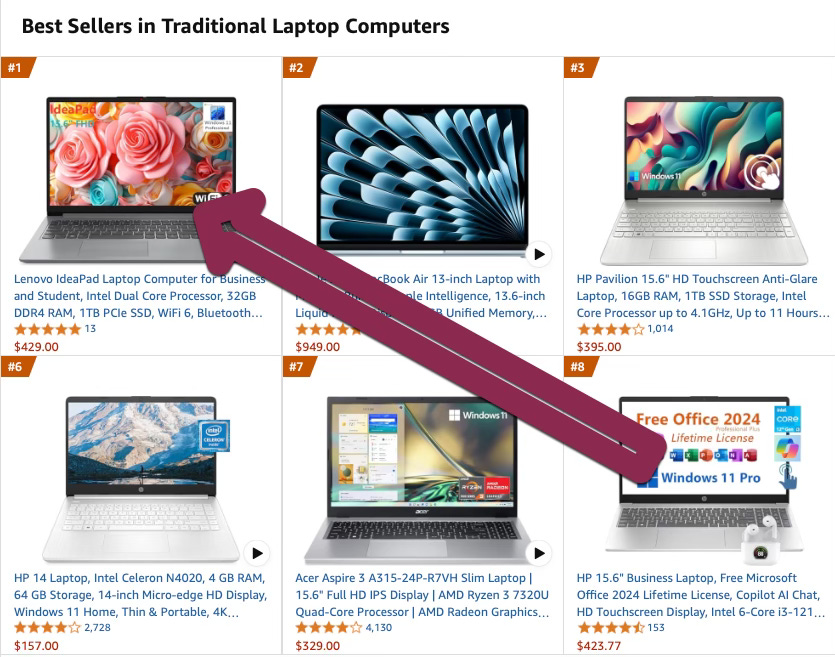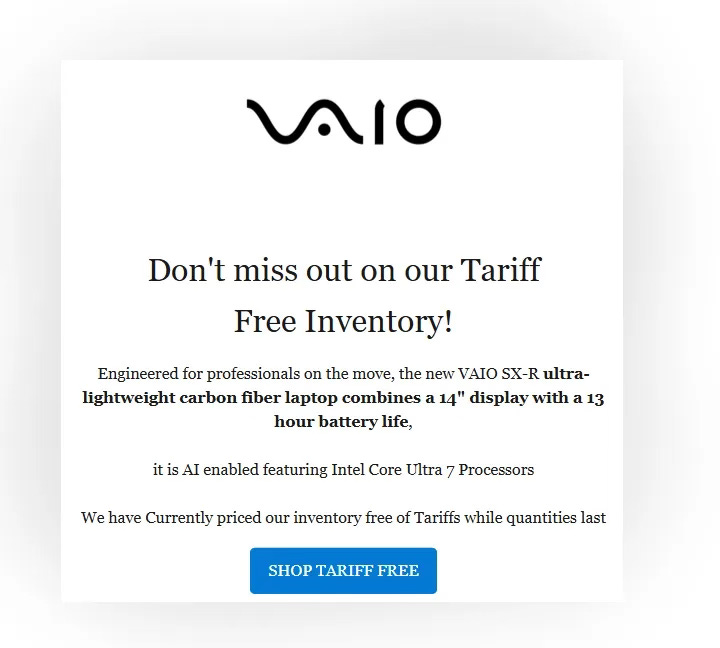Trump's steep and arbitrary tariffs have many people understandably worried about what will happen to the cost of things they buy every day, and consumer electronics are right in the tariffs' crosshairs.
That’s led to panic buying, with headlines saying that Apple stores are swarmed with customers looking to buy before prices go up.
And let me just say, if you're looking to buy something from Apple, that's fine. It’s not taking advantage of the situation, but other companies aren’t so trustworthy.
I’m going to highlight two tactics being used right now to play up tariff fears.
MSRP manipulation
First up: MSRP manipulation. Consider this laptop:
Wow! A $1499 laptop for $429!!! That's 71% off!!!
Except…it’s nonsense.
This laptop isn’t really worth $1,499. According to the CamelCamelCamel listing, it was listed at that price a couple days ago and more or less immediately dropped to $399. Now it’s $429.
The laptop claims to have 32GB of memory, which is a lot. But the processor is a dinky 1.1 GHz Intel Celeron with two cores that was launched in 2021.
Just how bad is that? Most N4500 laptops score about 500 in Geekbench 6 multi-core. Intel’s Core Ultra 5 125H, an entry-level CPU in its current line-up, typically scores at least 7,500.
In other words, this laptop will be obsolete the moment it’s unboxed.
And how did I find this laptop? It’s currently the #1 best selling laptop on Amazon.
Just goes to show that, if you're worried about tariffs and want to buy something immediately, be careful.
There's questionable listings out there that are targeted at people desperate for a deal. And they’re working.
Marketing on fear
Other companies are taking a more direct approach.
Tom’s Hardware reports that Vaio, the company which now owns Sony’s classic Vaio PC brand, sent a marketing email urging shoppers to buy now before the tariffs kick in.
The rather amateur email told shoppers to “buy our inventory free of Tariffs while quantities last”.
This seems like a quick decision on the part of whoever is in charge of Vaio’s e-mail marketing, as Vaio’s website doesn't mention tariffs.
Unlike the shady listing on Amazon, Vaio’s laptops aren’t priced in a way that’s deceptive.
But they’re still not a good deal.
If you live in the U.S. you may not have been aware Vaio still exists. There’s good reason for that. The company’s presence in the U.S. is small and its pricing isn’t competitive.
Unlike the first example, the Vaio laptop would be fine. But you could get more for your money with Lenovo, Dell, or Apple.
Think twice before you buy
I encourage you to do two things before you buy.
Ask yourself if you really need it.
Ask yourself if you really understand what you’re buying.
There’s no problem buying gear you’ve put off if you know that you need it, but give yourself a gut-check. There’s plenty of product listings, marketing emails, and ads looking to take advantage of the situation.






